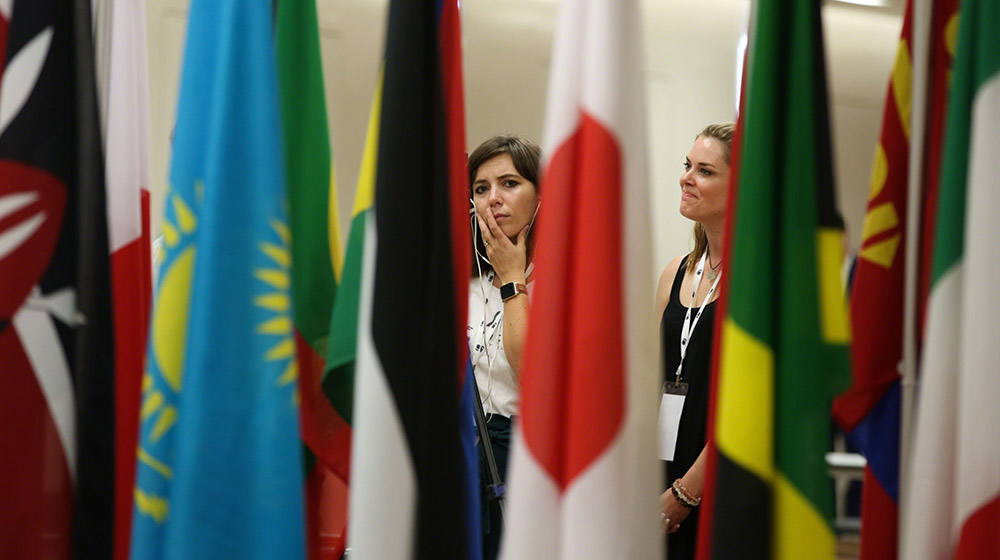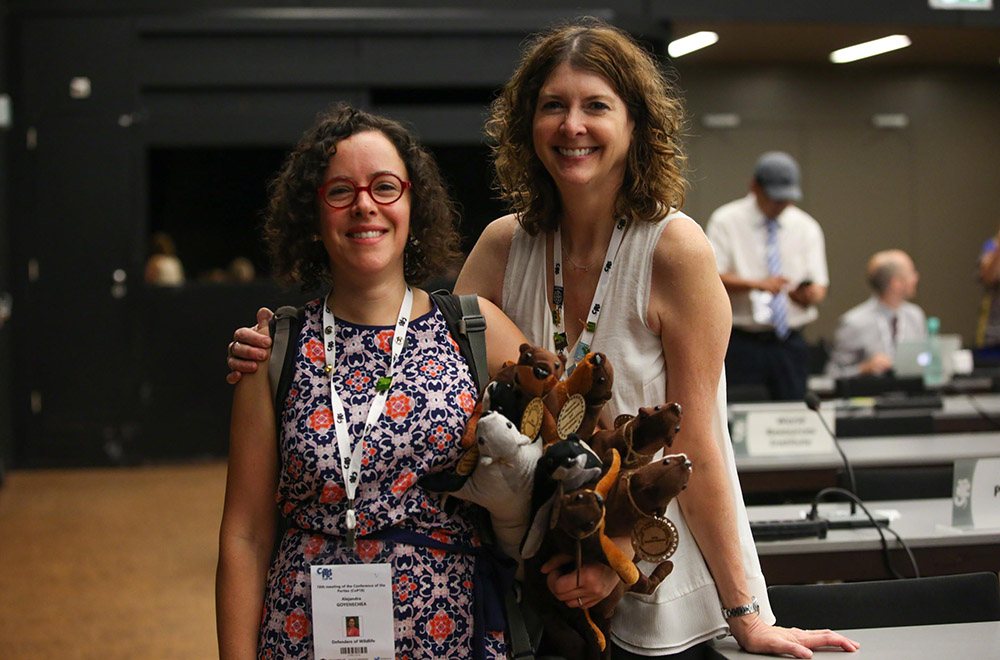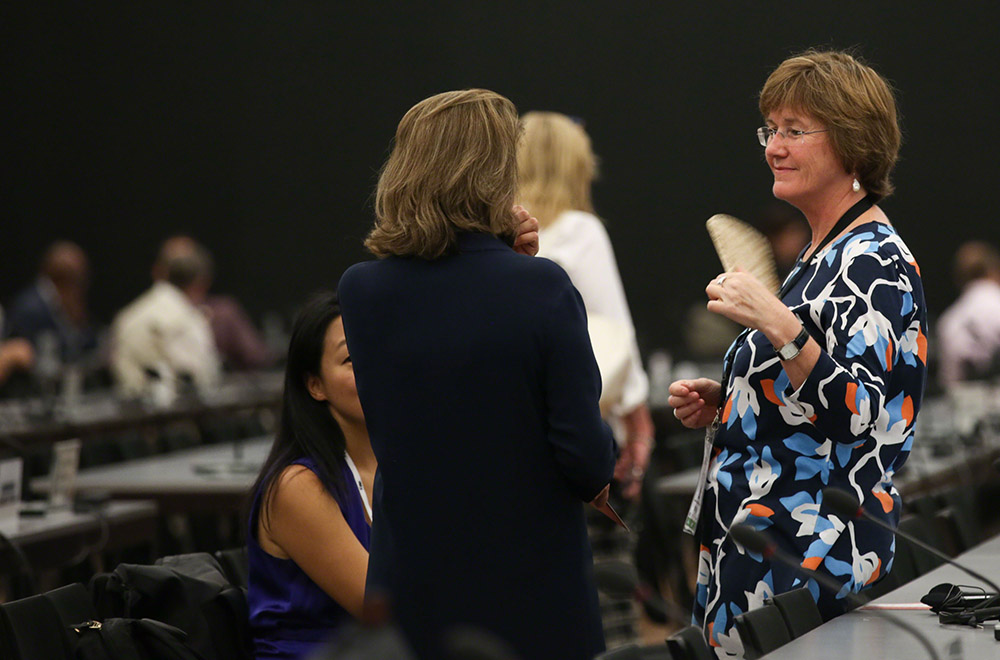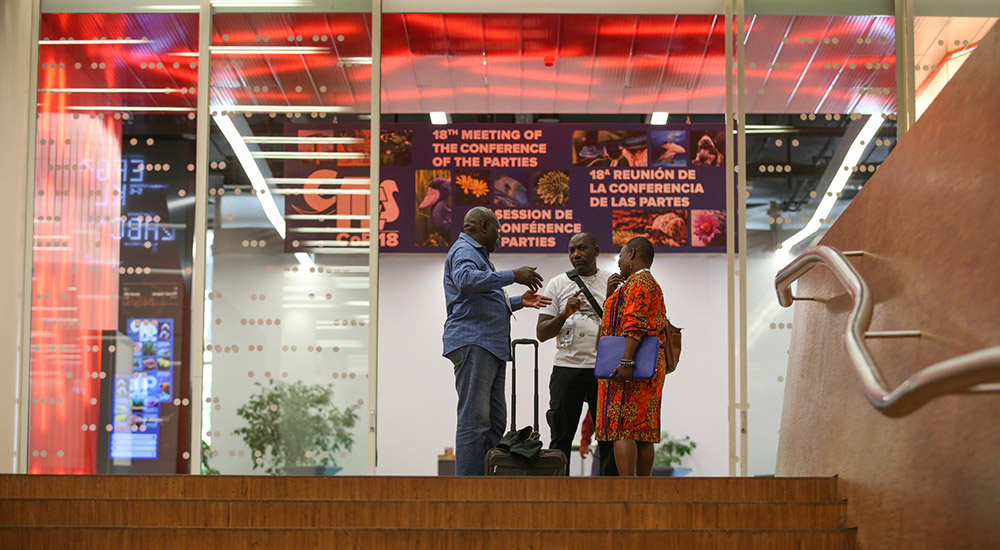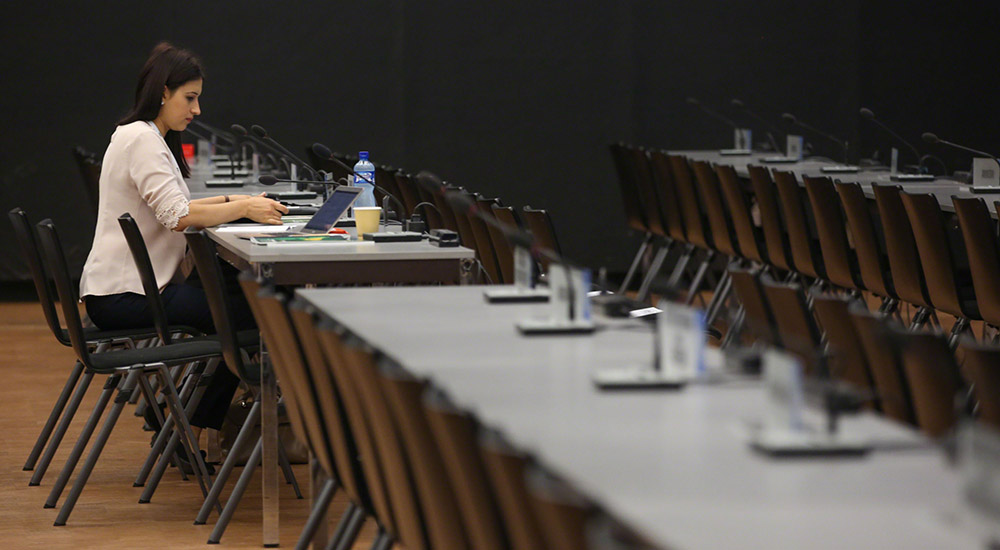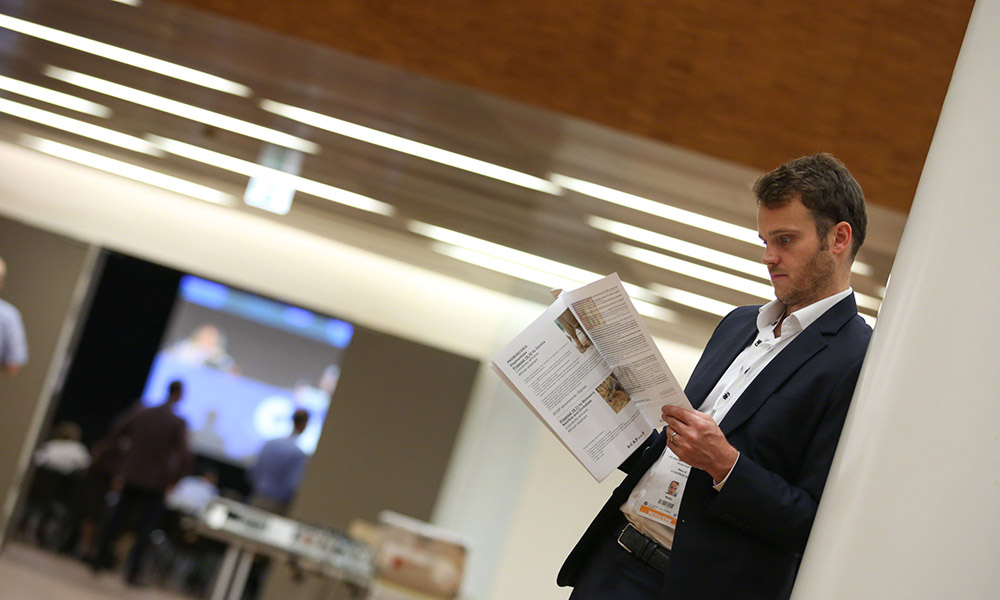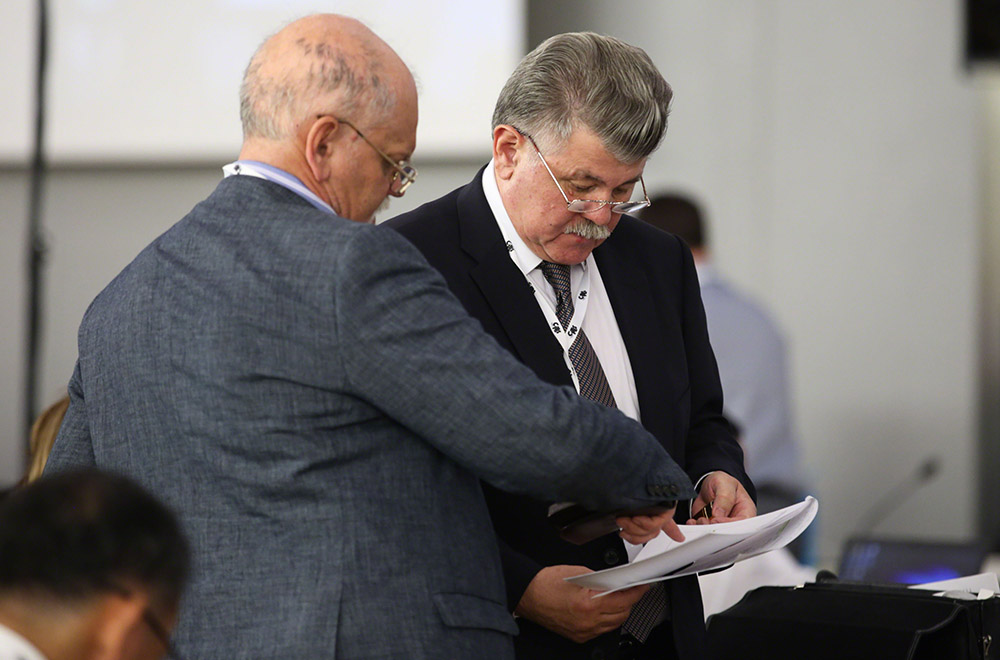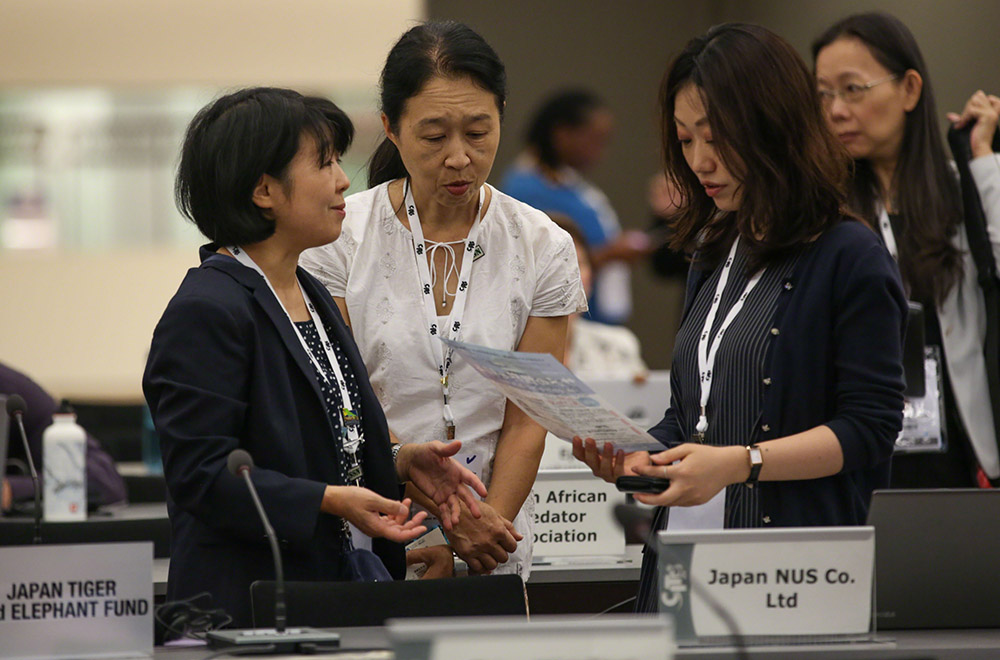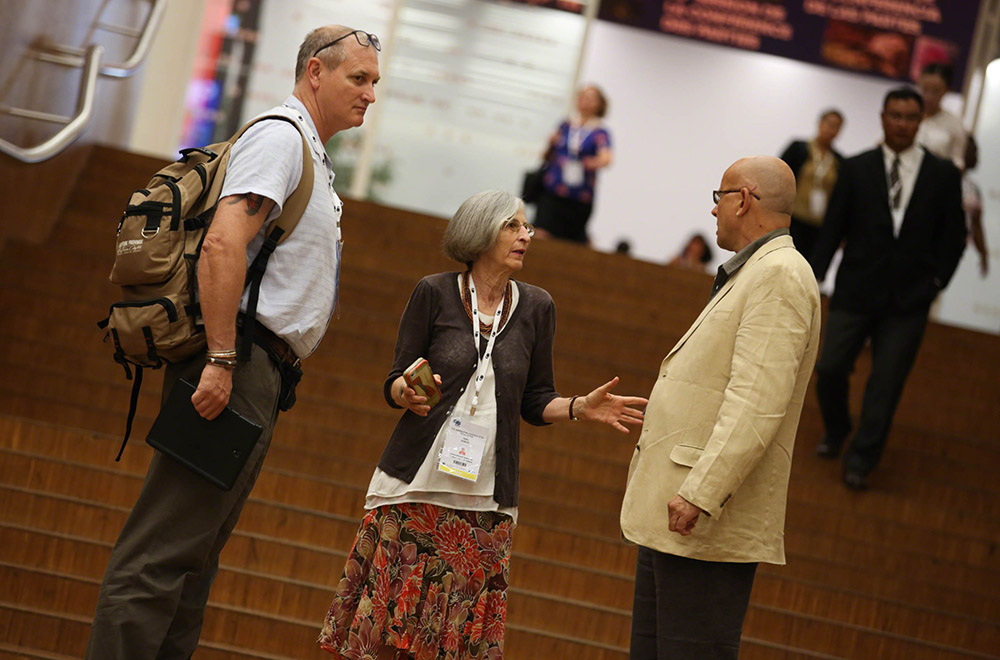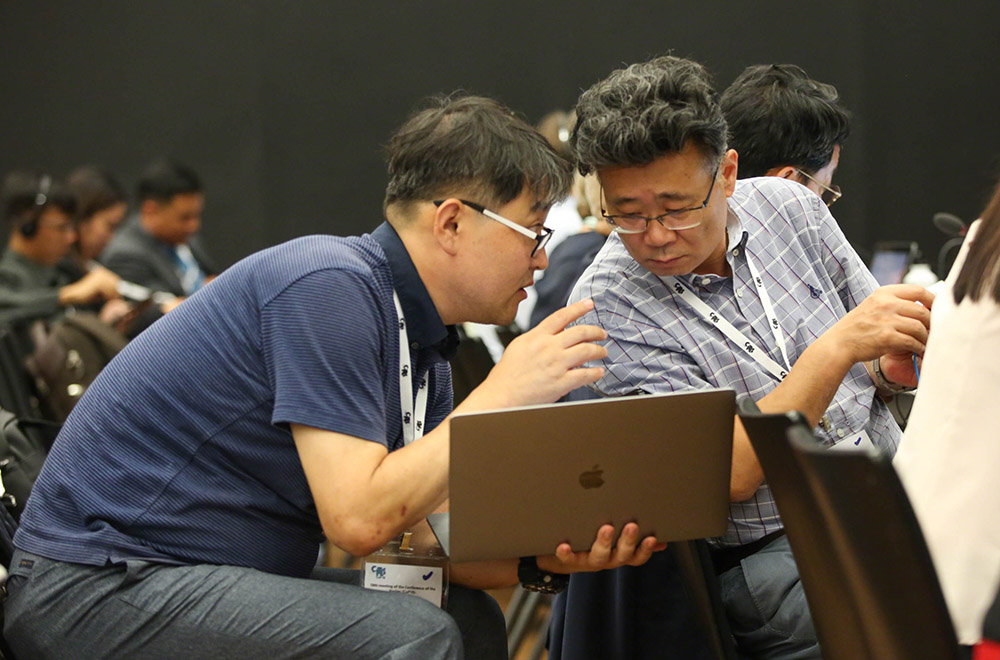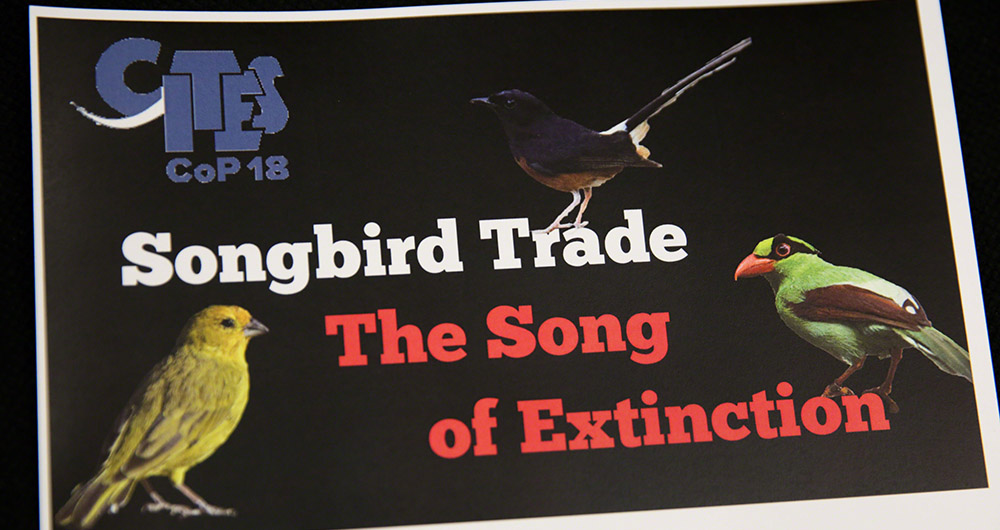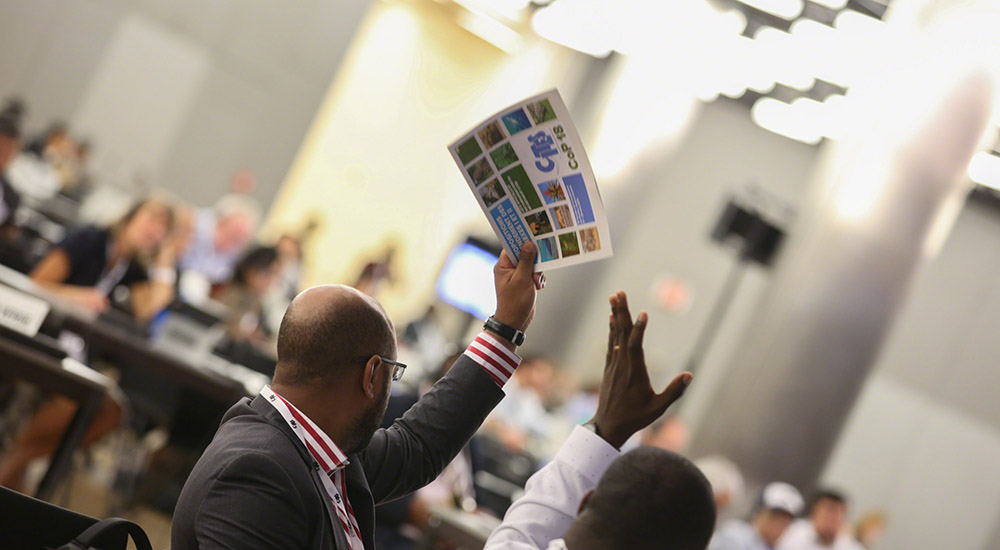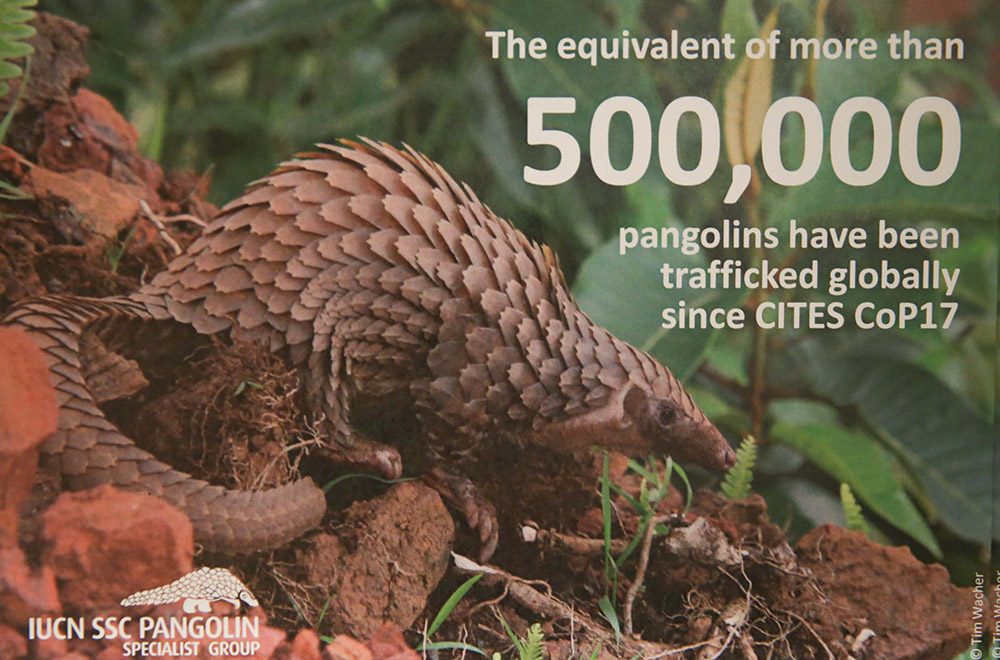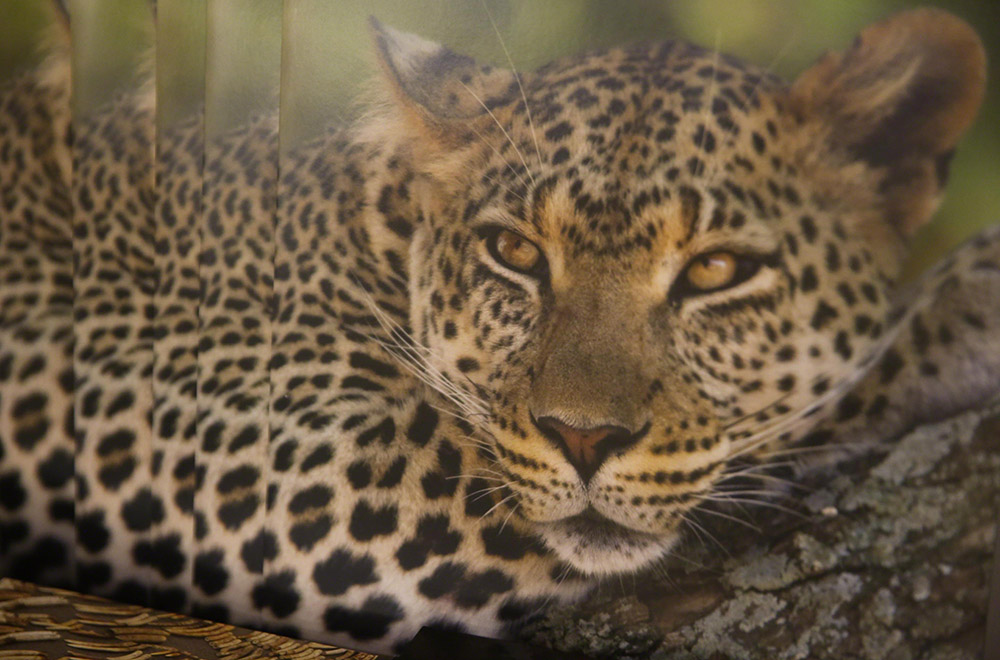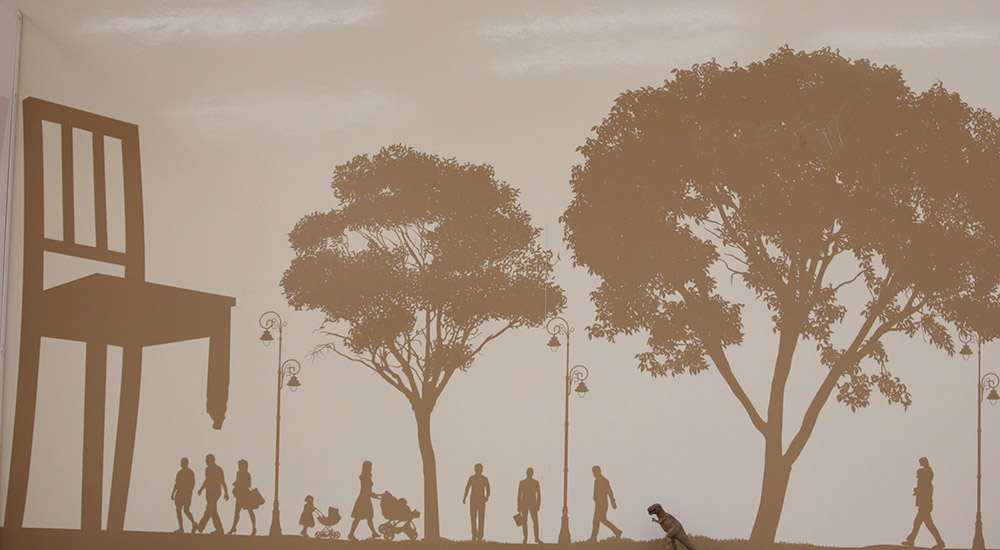Summary
Highlights for Sunday, 18 August 2019
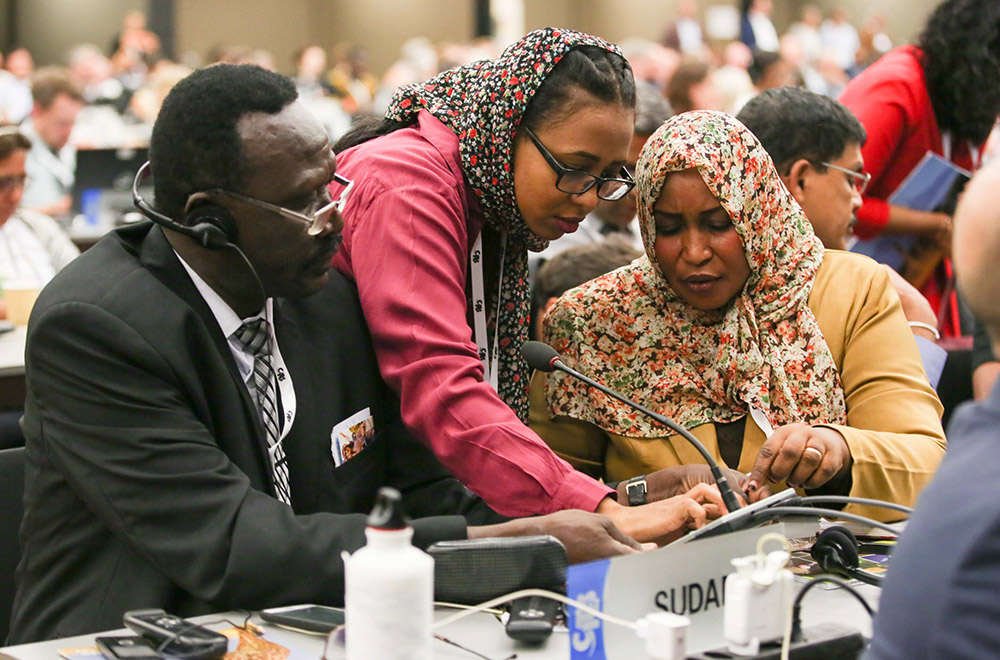
Committee I Chair, Rod Hay, opened the meeting with a traditional New Zealand saying, “Behold the breath of life… to the sacred earth, greetings” and joined his colleagues in a traditional song. In stressing collaboration and supporting disparate worldviews, he reminded participants that “nature isn’t ruled by dogma” and that the human relationship with nature must inform our decisions.Committee I discussed the African Carnivores Initiative (ACI) between CITES and the Convention on the Conservation of Migratory Species (CMS) on four African carnivore species: lion, leopard, cheetah, and wild dog. CMS spoke in support of this joint work and highlighted the upcoming Conference of Parties in India, as well as plans for a new position to support ACI. The US noted the need for greater involvement by the Standing Committee. Zimbabwe, Mali, Togo, and others supported the creation of ACI and emphasized the importance of funding for implementation and capacity building. The Committee called on the CoP to adopt the draft decisions on the Joint CITES-CMS African Carnivores Initiative.During the discussion on African lions and how they are affected by illegal trade, Mexico and other countries highlighted that big cats in other regions are also affected by illegal trade and the trade in bones and body parts, mentioning the case of jaguars in Bolivia, Belize, Peru, and Mexico. The Committee established a working group to discuss issues related to African lions as well as big cats in other regions, chaired by Mathias Lörtscher, Switzerland.Committee I also discussed the agenda item on quotas on leopard hunting trophies. The EU favored suspending the quotas of countries that have not provided relevant information for review, pending recommendations to be made by the Animals and Standing Committees. Several African countries highlighted the difficulty of assessing leopard populations. Senegal stated that leopard hunting quotas have been out of date and that quotas should be based on scientific evidence. The Committee established a working group, chaired by the UK, to review the process for interpreting and applying quotas.Committee I also agreed to review existing guidance on non-detriment findings (NDF), identify gaps and, subject to findings, to hold an international expert workshop to NDF guidelines. A proposal by Pakistan to discuss quotas for markhor hunting trophies was withdrawn. The Committee agreed to study the identification of sturgeons and paddlefish specimens in trade.In Committee II, Chair Craig Hoover facilitated the discussion of agenda items on financial and administrative matters related to the implementation of the Convention and functioning of the Secretariat, including the relationship between CITES and other biodiversity-related Conventions. A proposal by Iraq on the language strategy for the Convention drew attention to the challenges faced by Arabic, Russian and Chinese-speaking delegates. Committee II also addressed the need for a more targeted review of the Convention’s effectiveness.CoP18 held its first vote in the afternoon, with parties in Committee I supporting amendments that would restrict the definition of “appropriate and acceptable destinations” with regard to trade in live African elephants only to areas that are in situ conservation programmes, or secure areas within the natural range of the species.
IISD Reporting Services, through its ENB Meeting Coverage, provided daily web coverage and a summary and analysis report from CITES CoP18.
Photos by IISD/ENB | Kiara Worth
For photo reprint permissions, please follow instructions at our Attribution Regulations for Meeting Photo Usage Page.
Committee I: Species-Specific Matters
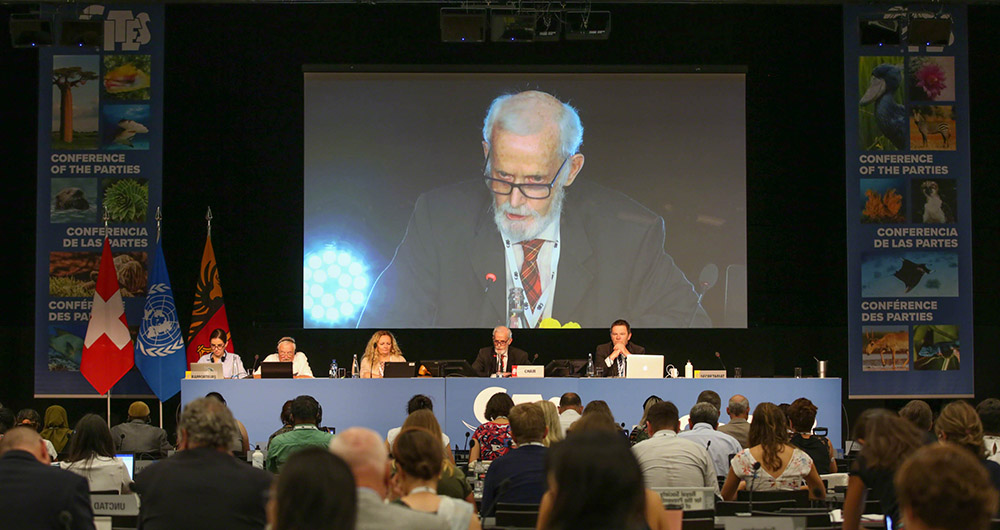
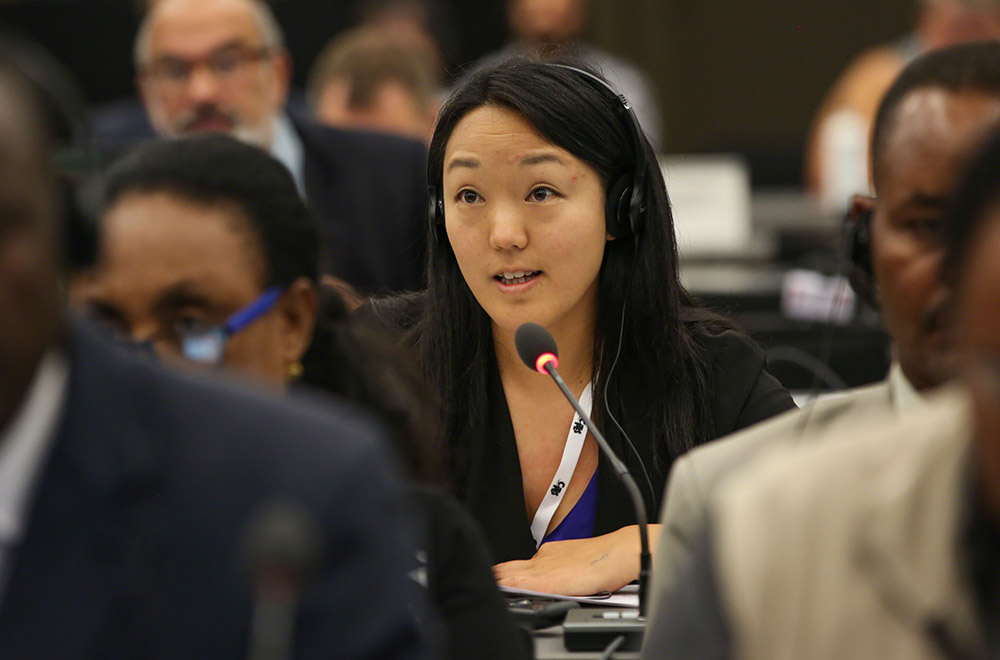
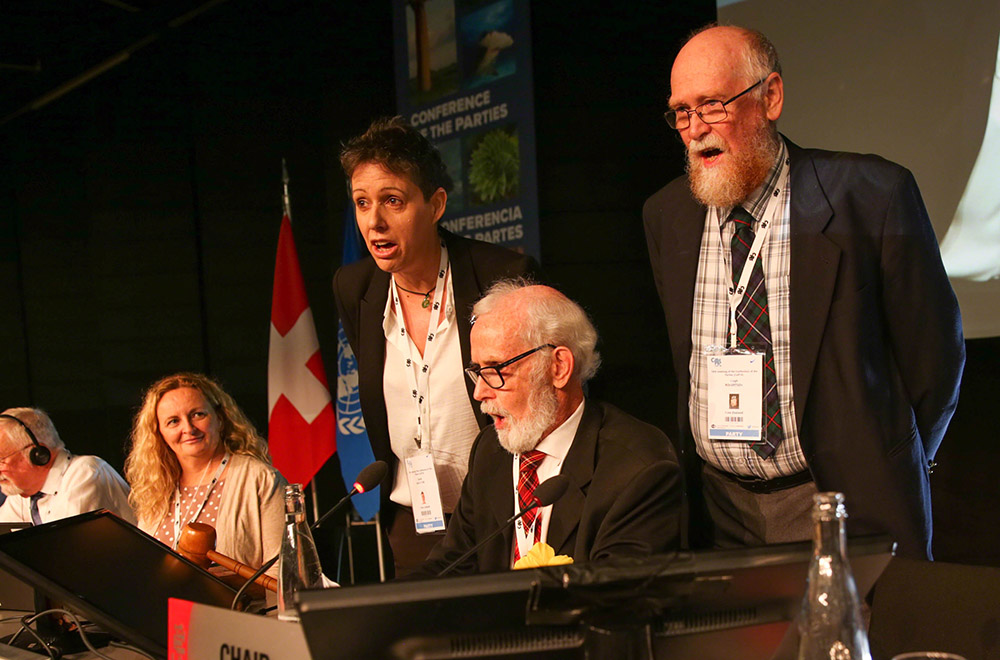
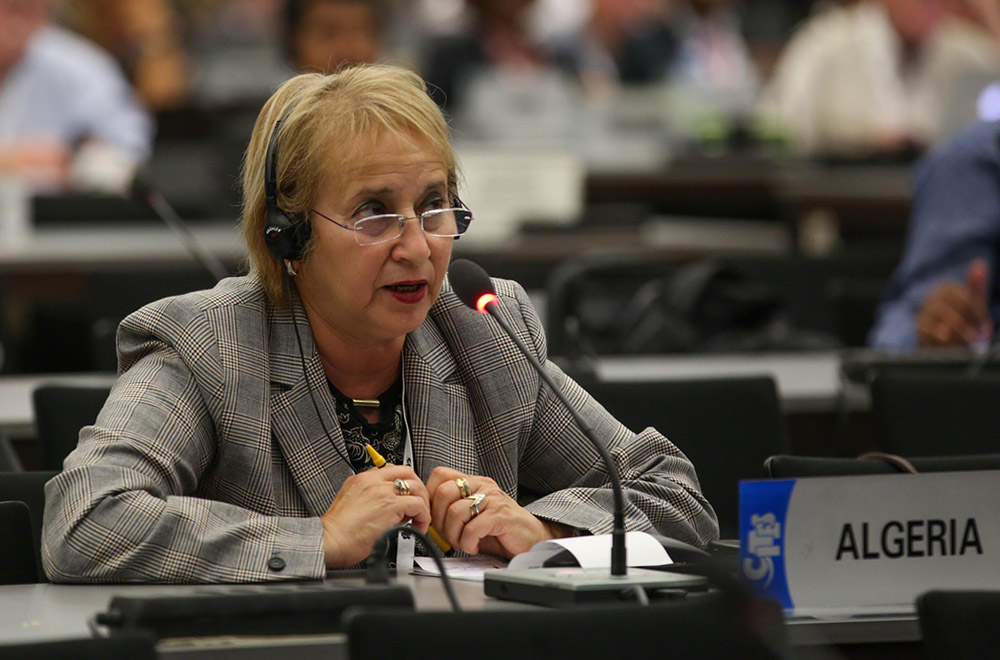
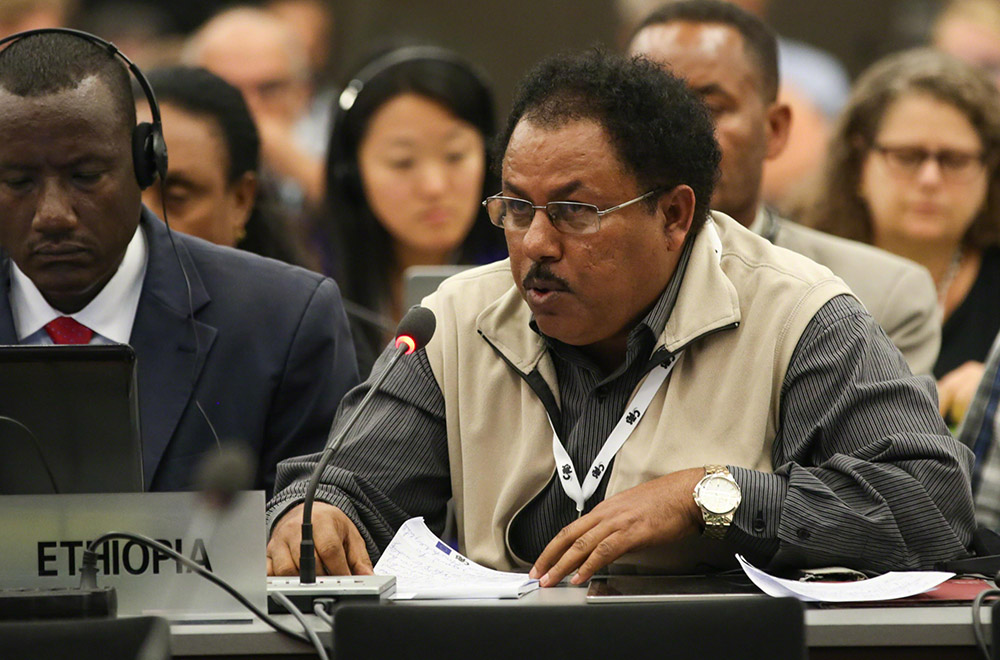
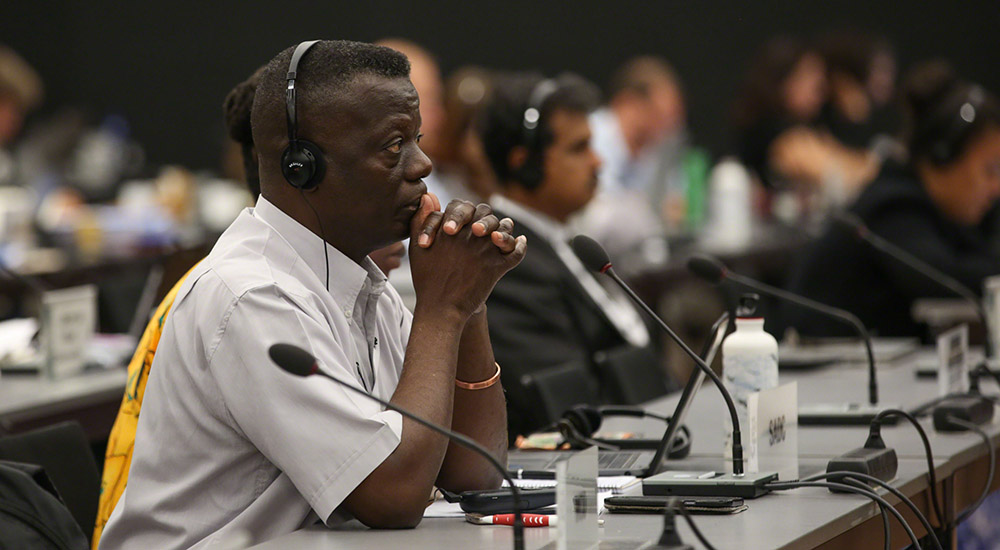
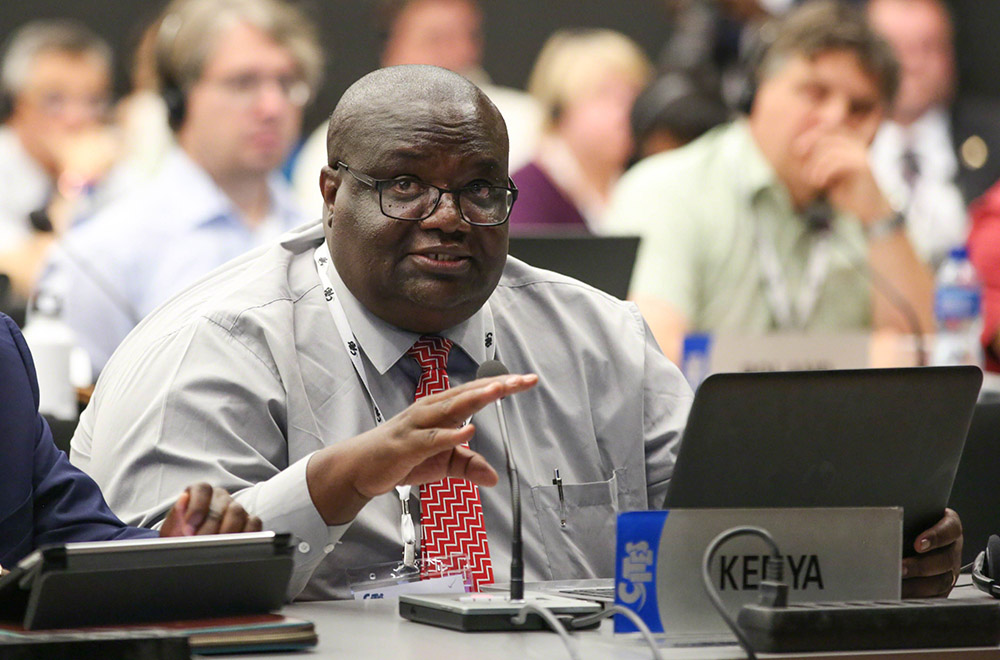
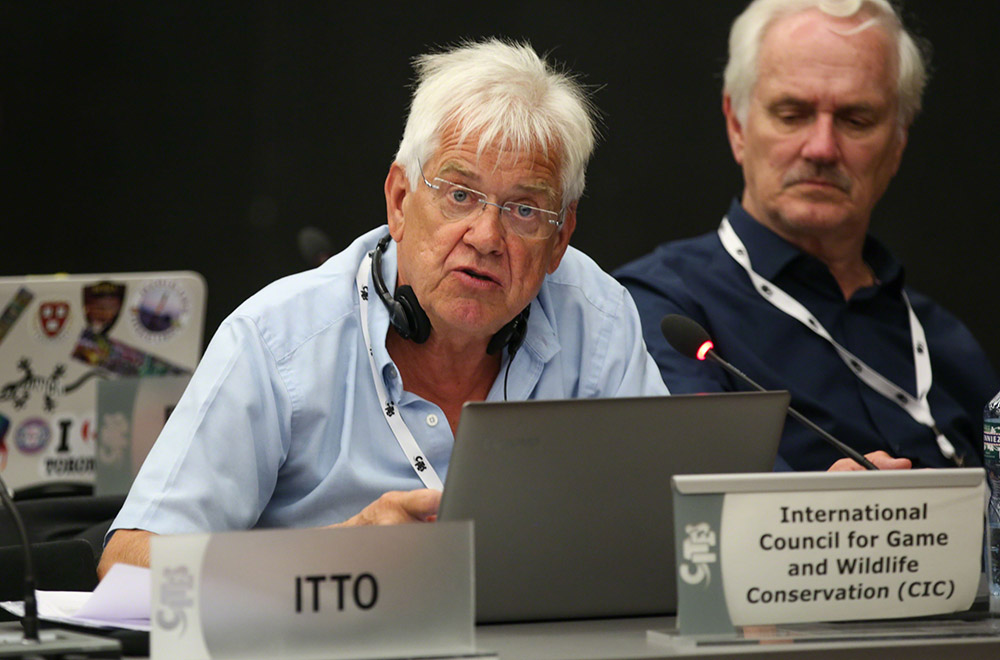
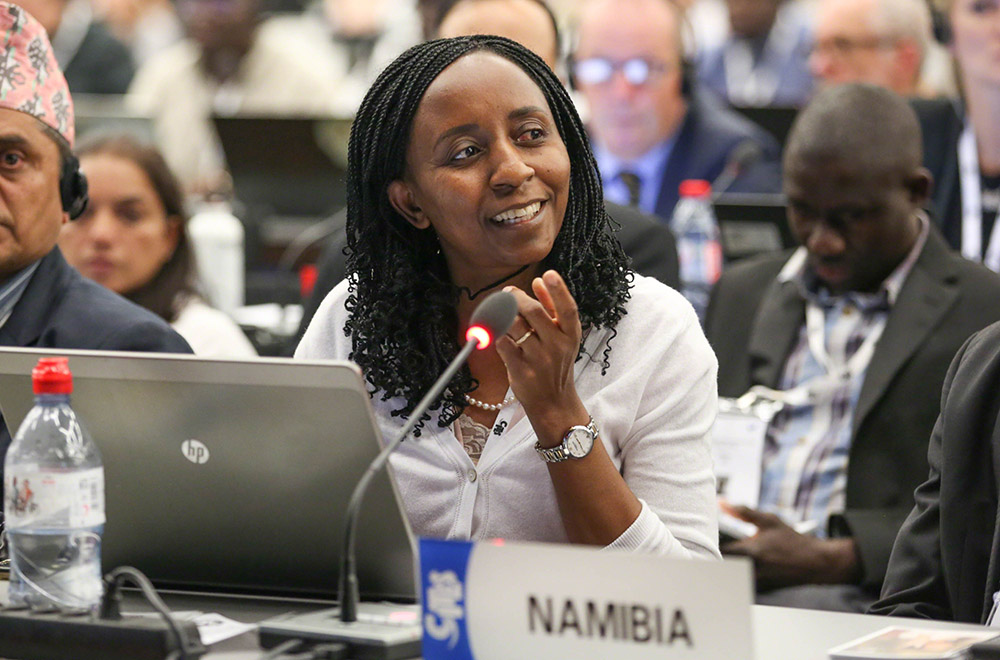
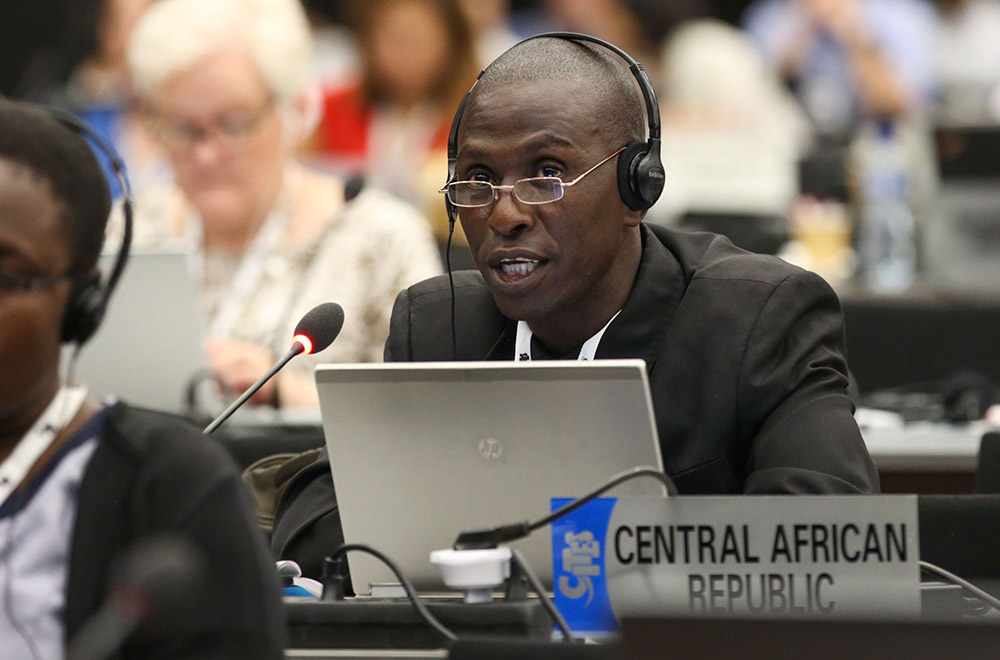
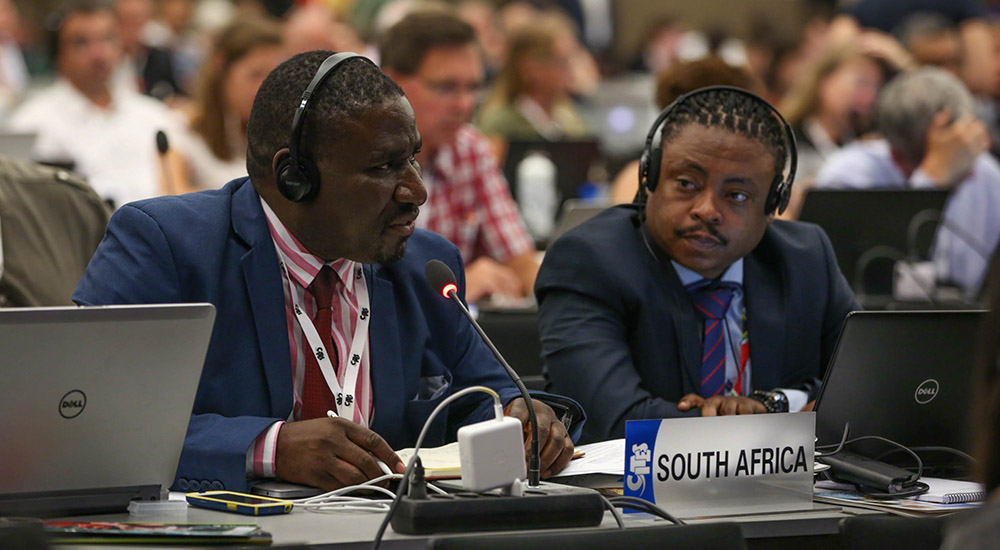
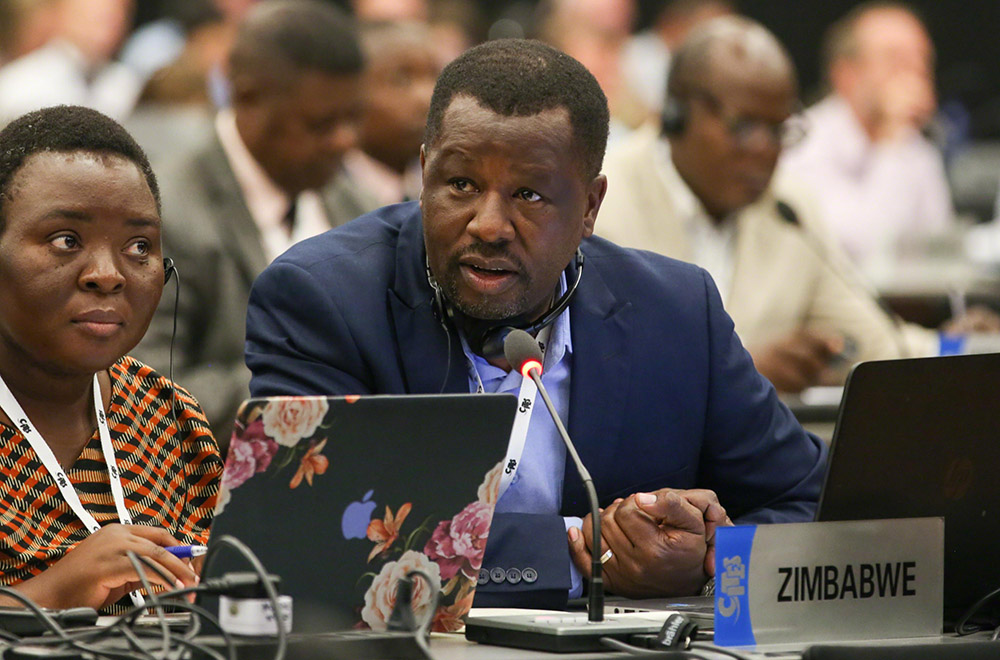
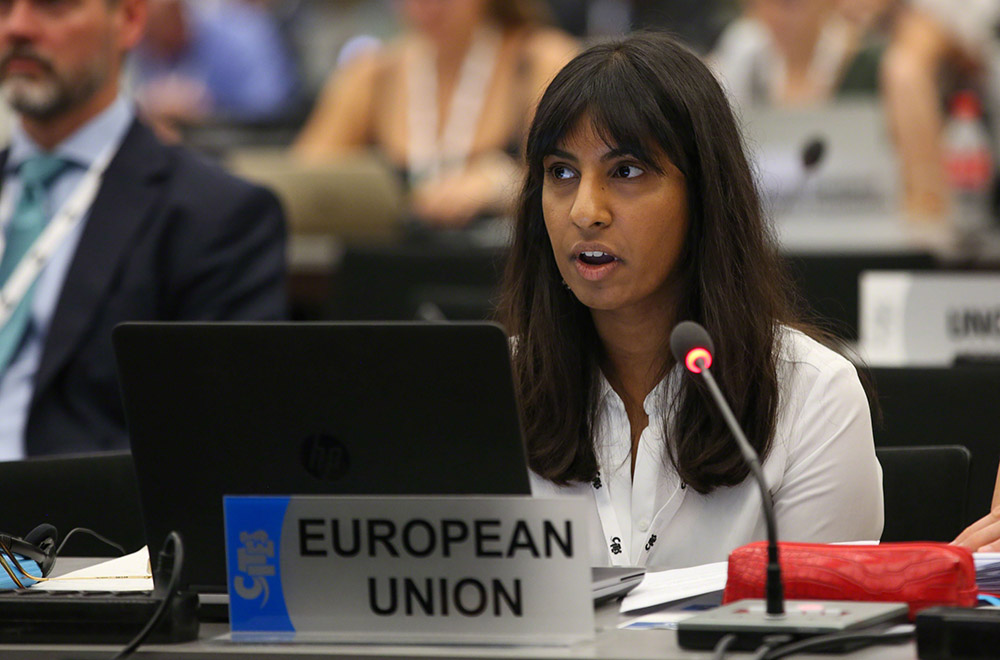
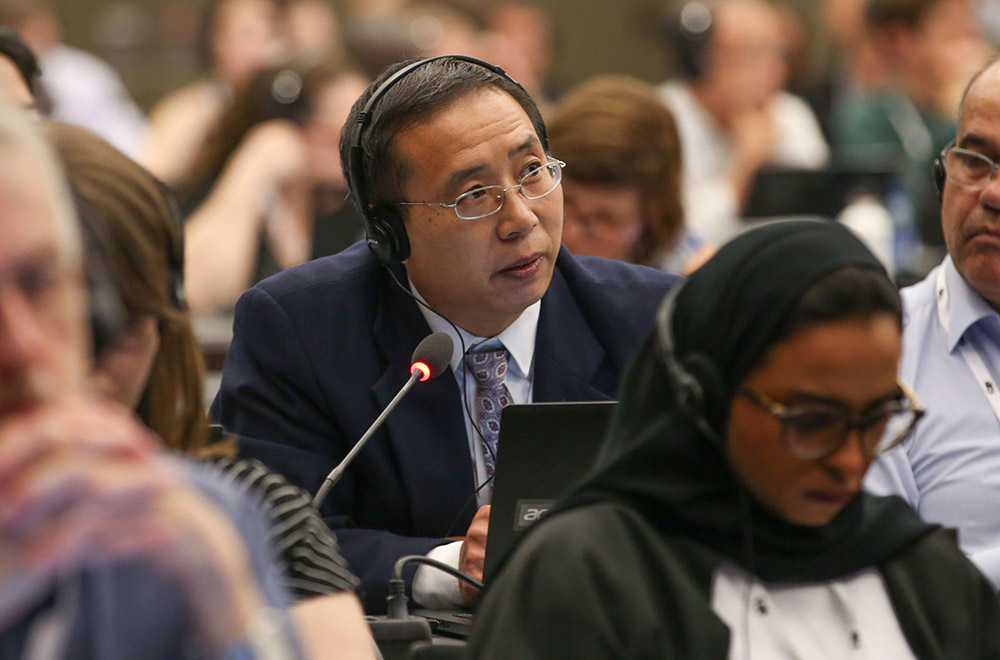
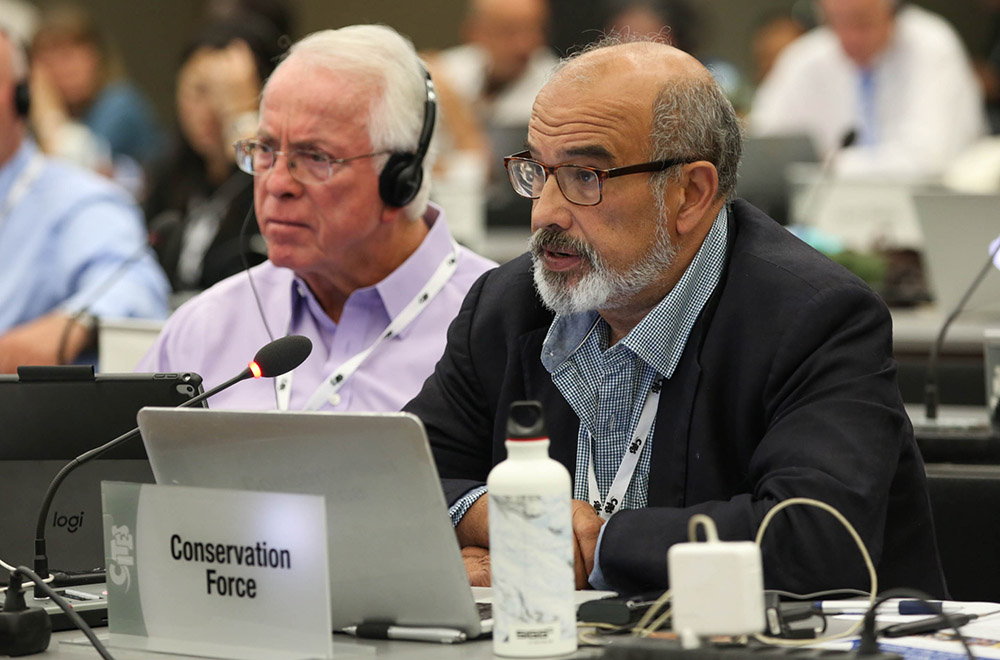

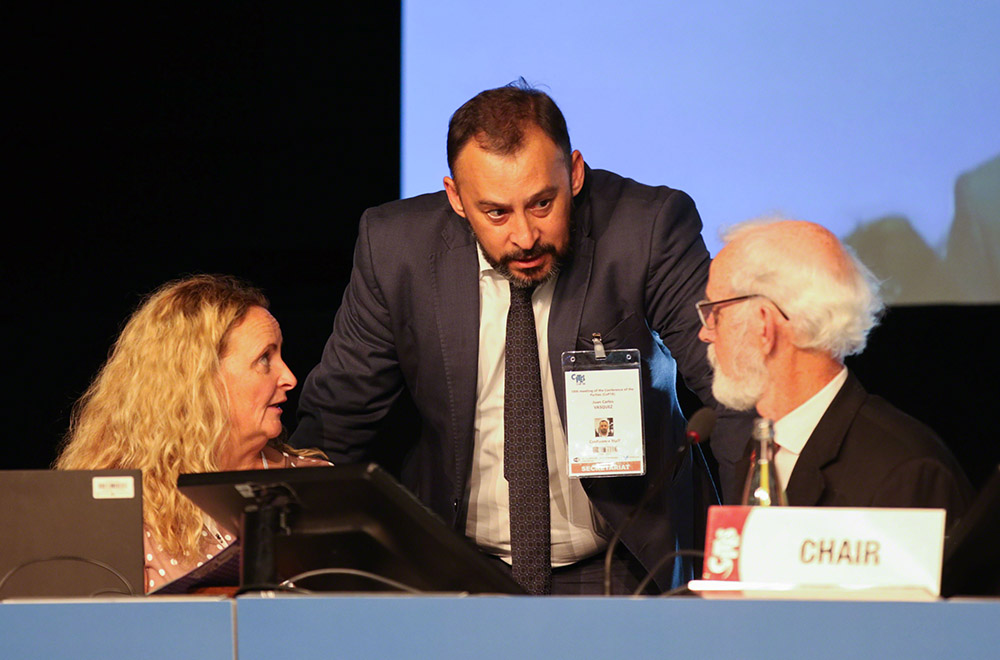
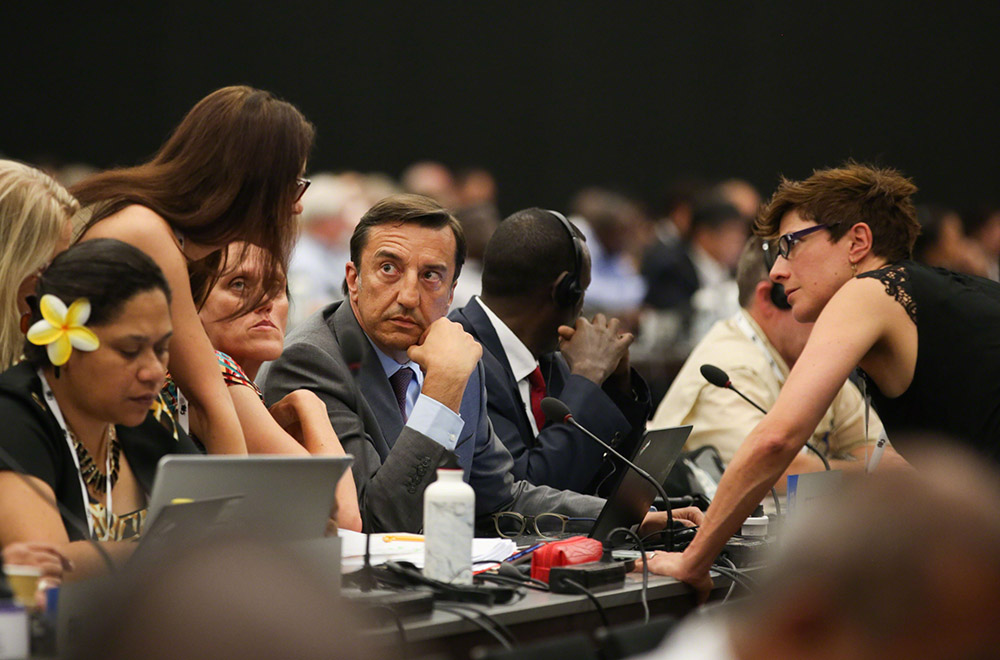
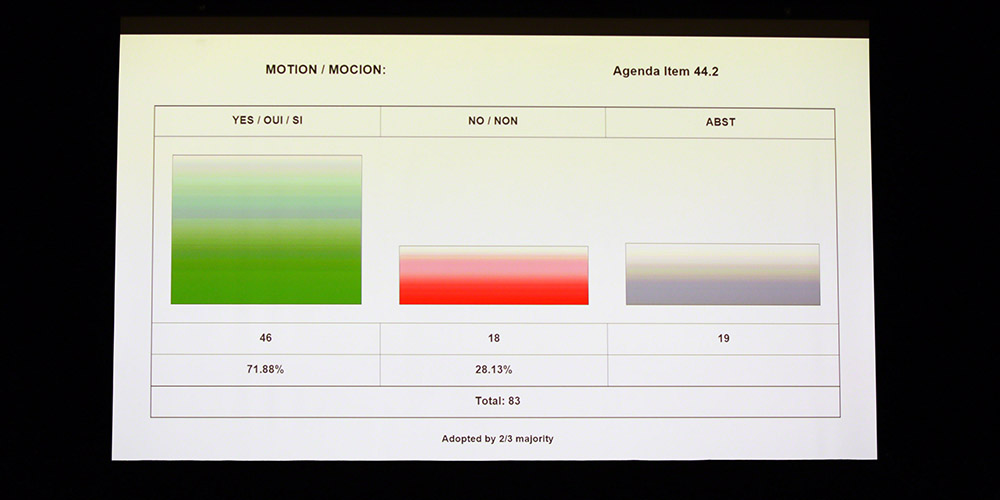
Committee II: Interpretation and Implementation Matters
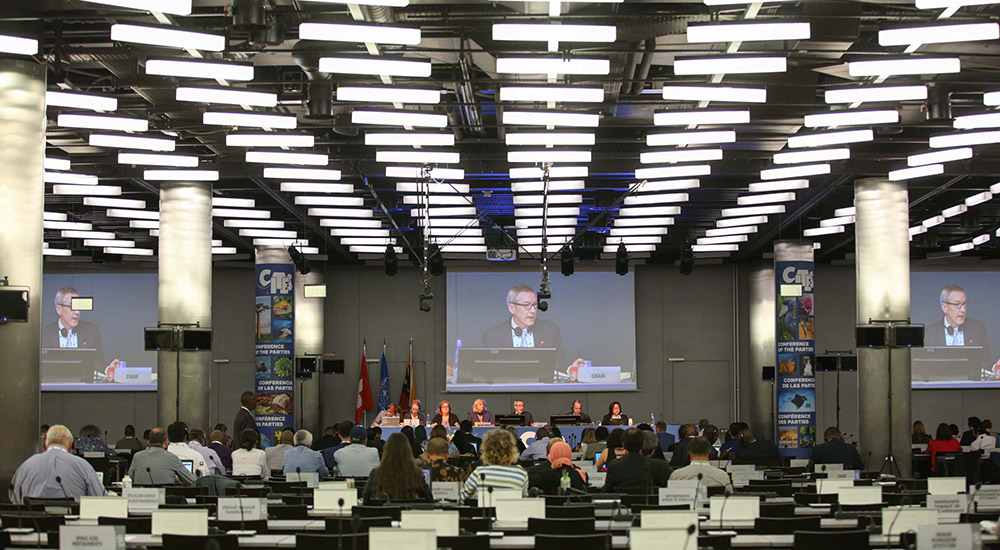
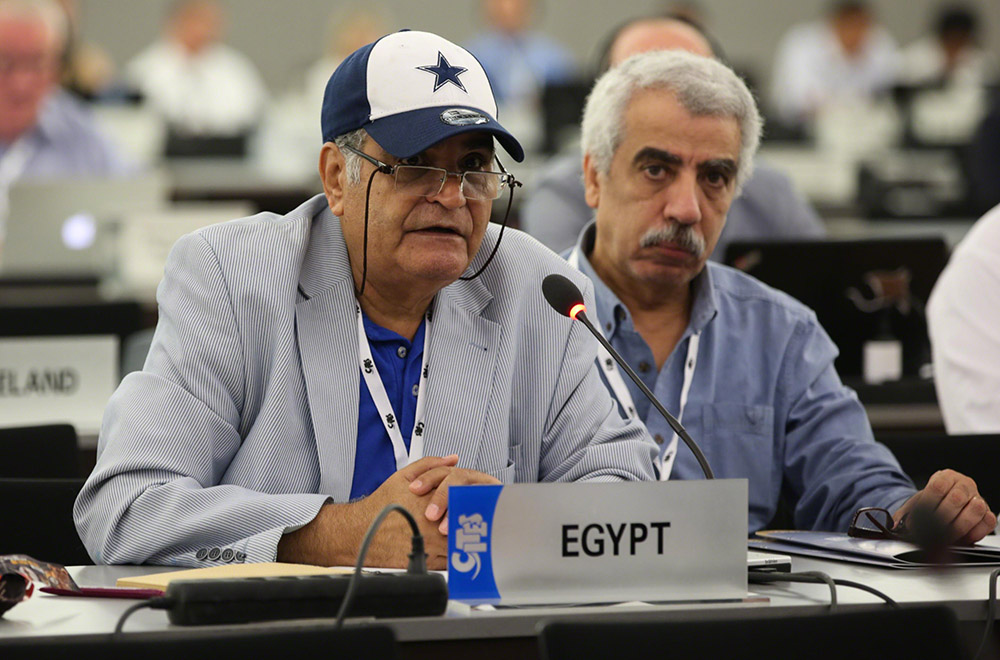
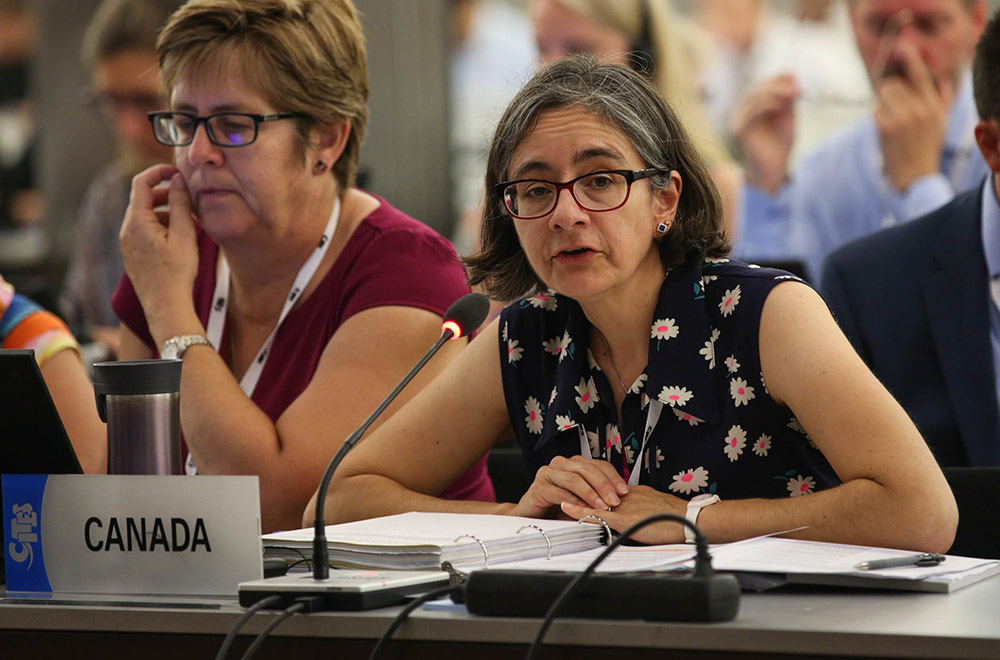
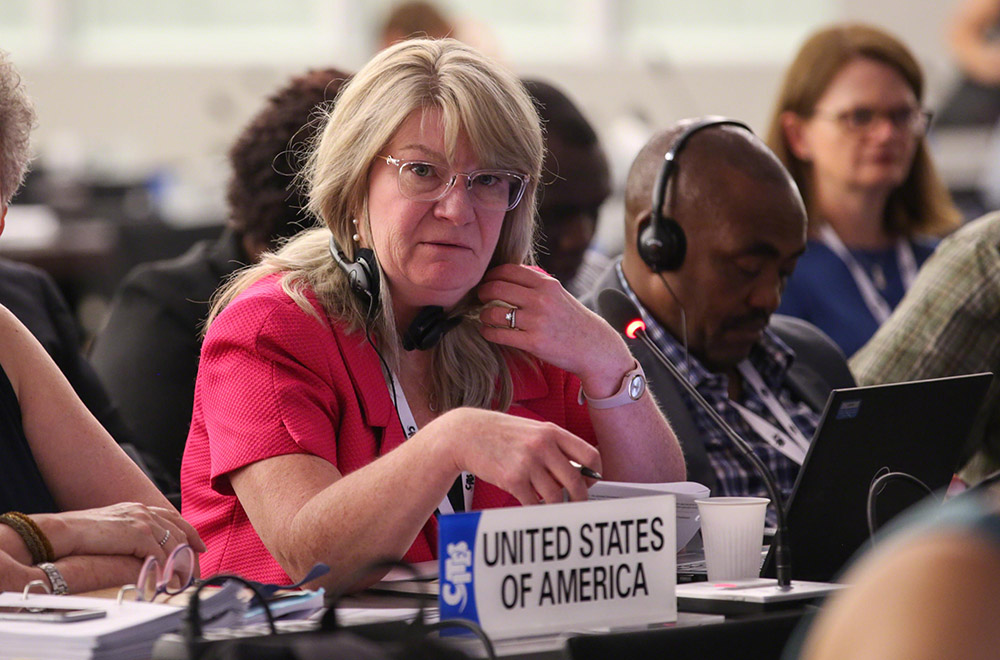
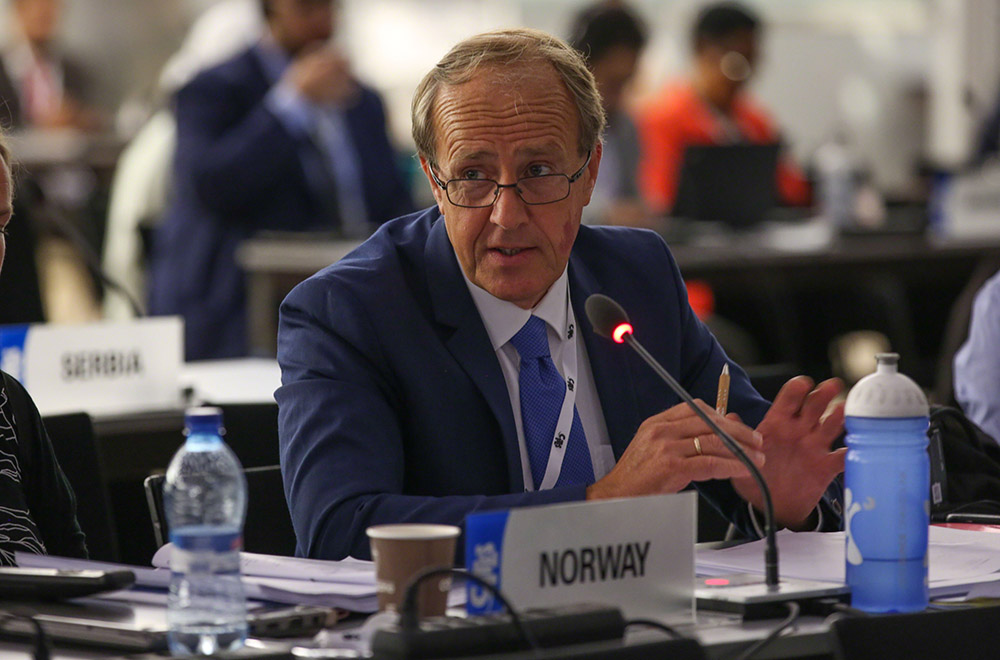
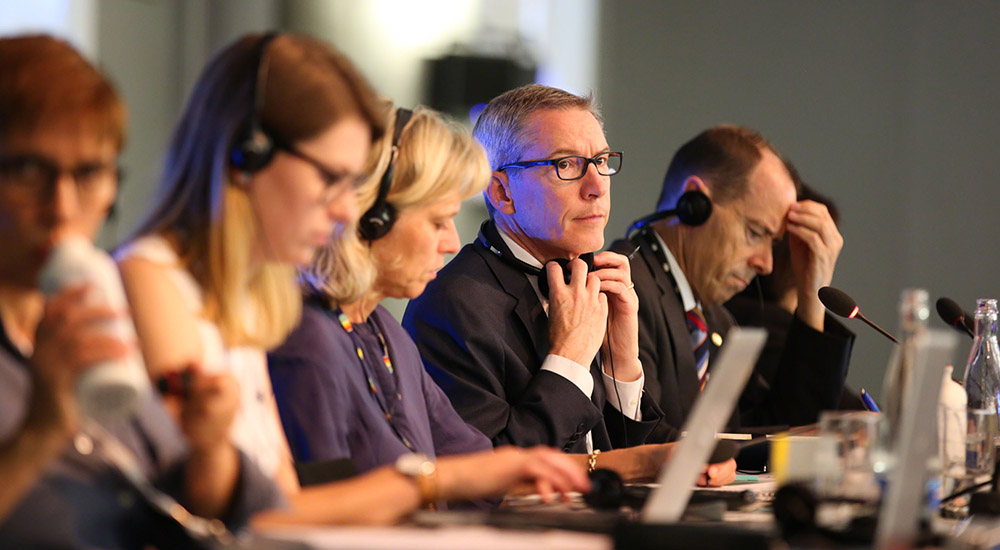
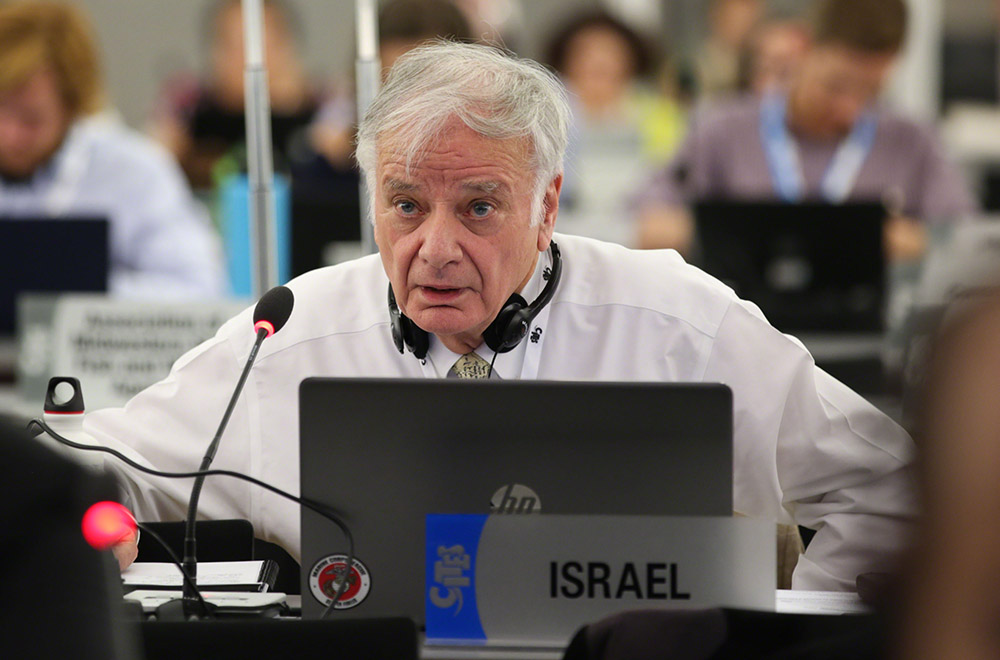
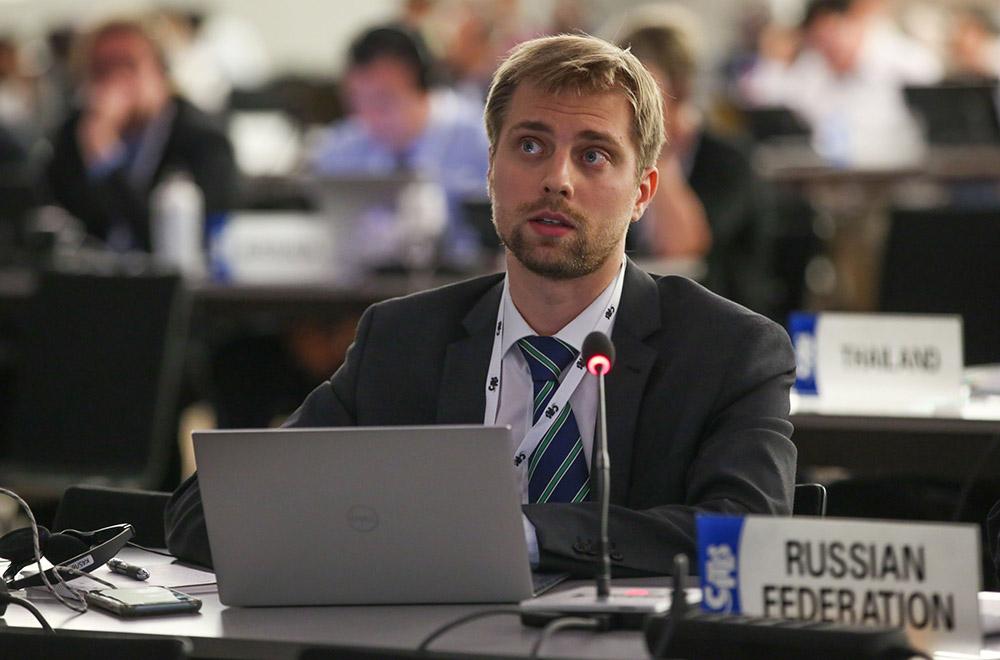
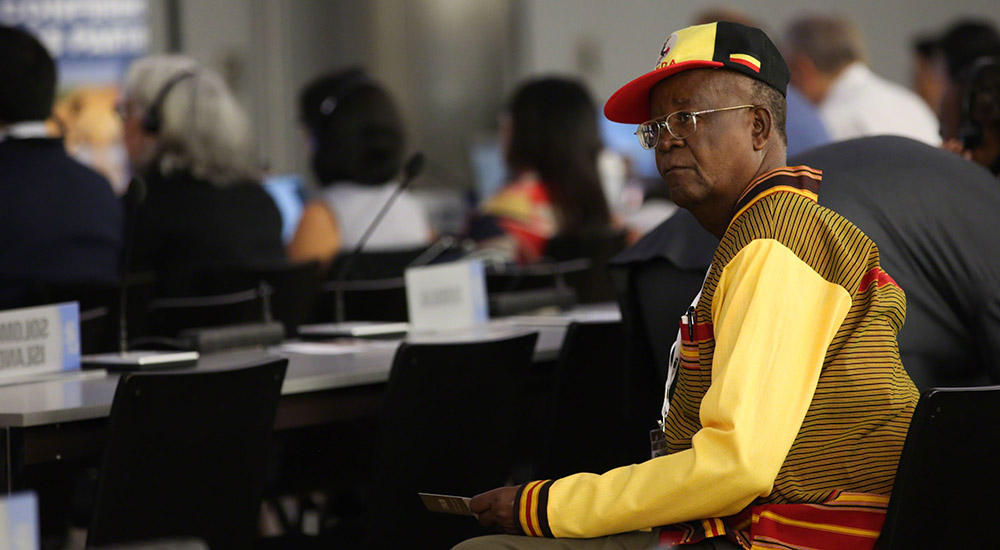
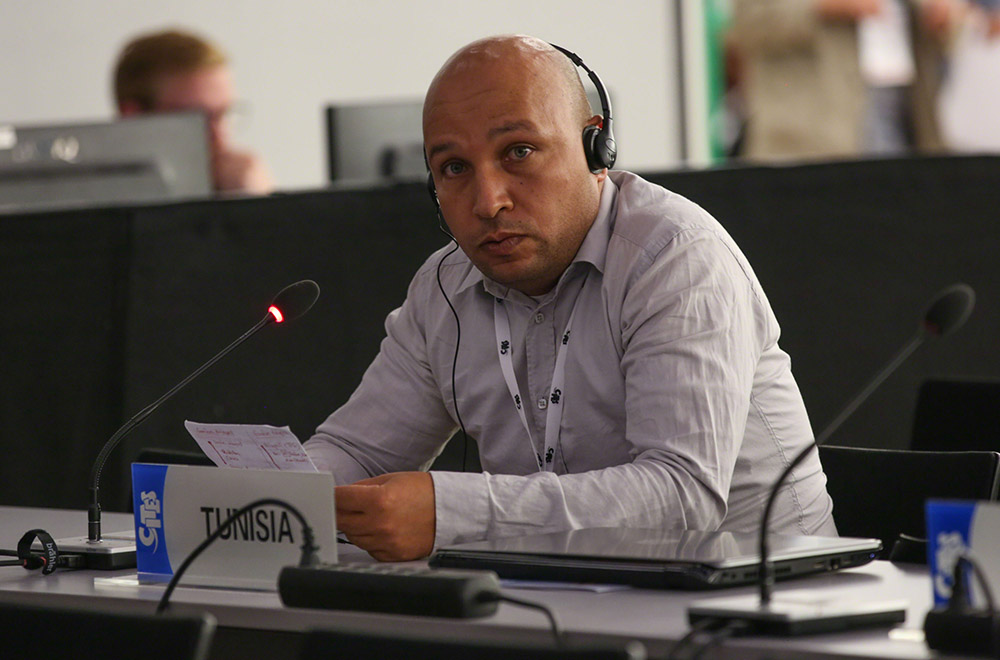
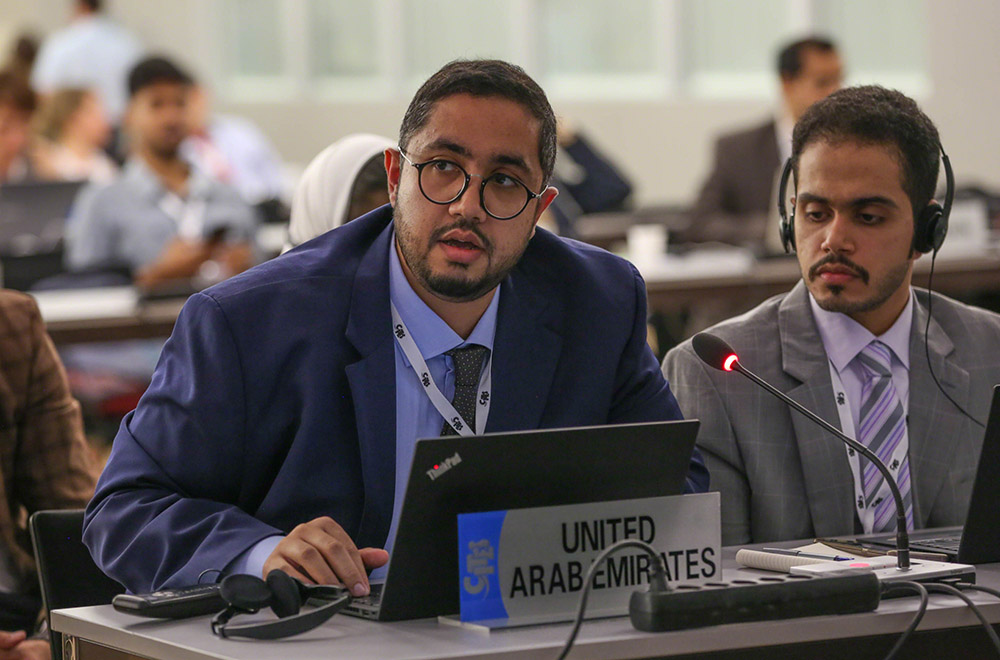
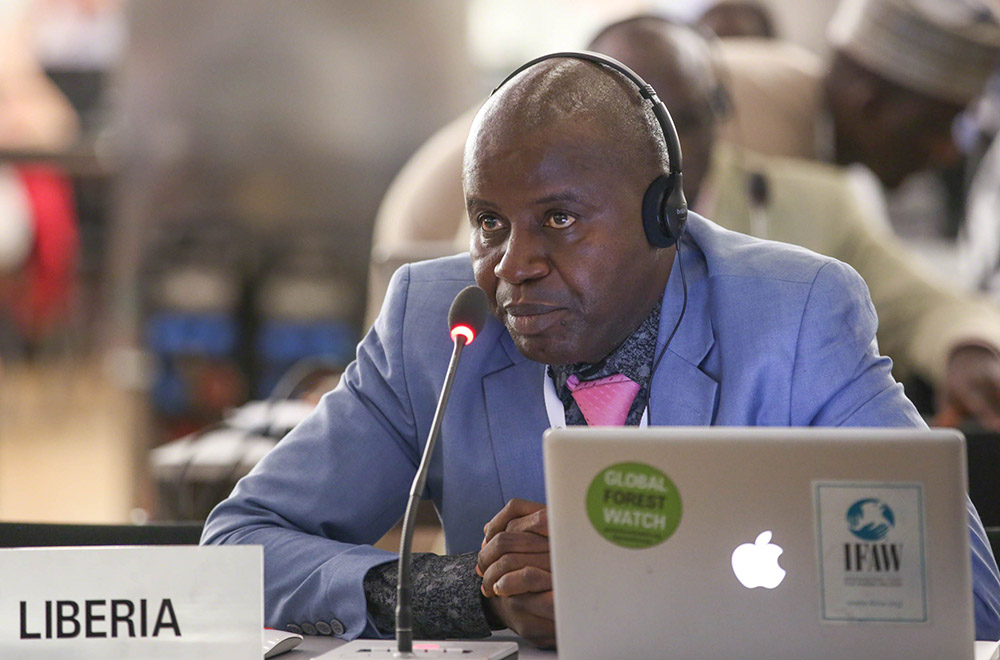
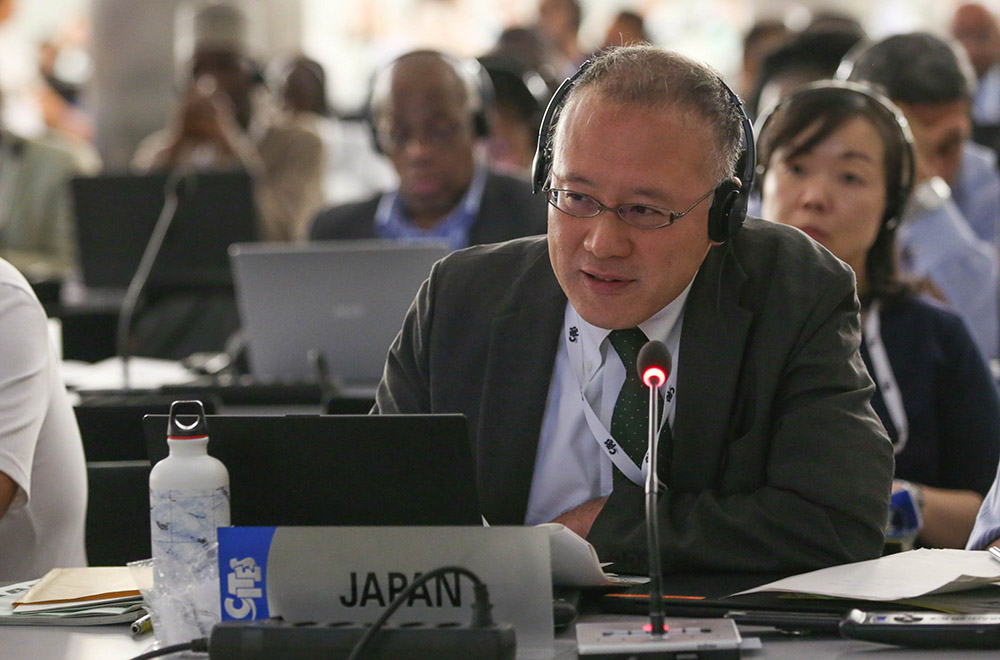

Around the Venue
